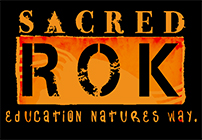Since 2009, Ron Kauk has led trips to Yosemite for more than 400 young people – primarily incarcerated youth, foster children, and low income young people – to experience the healing ceremony of nature. Between February 2012 and March 2018, Sacred Rok received 157 surveys from youth, primarily from the Merced Boys & Girls Club as well as other nonprofit agencies. The survey responses represented 56% boys and 44% girls. Forty-six percent were between ages 8 and 12; 48% were between ages 13 and 17, and 6% were 18 or older. Fifty-four percent were Latino, 31% were African-American, 9% were Caucasian, and 6% were Asian/Hmong. We also have reports about participant behavior after the trip from agency staff and mentors.
Research shows the positive impact on the brain and behavior of being in nature. Deepening the sense of connectedness with nature helps to address other forms of alienation in a person's life. Sacred Rok fosters naturalist intelligence, allowing participants to learn through their own experience. We provide the sanctuary space for youth to reflect on their own aspirations and goals, allowing the healing ceremony of nature to help the participants relax, reduce stress, and provide them the opportunity for peaceful self-reflection.
We found that after the trips, youth said they knew more about nature and felt more confident in nature. They felt better about themselves, less stressed and anxious.
We anticipated that the experience in nature, away from phones and day to day distractions, surrounded by the magnificence and beauty of the natural world, would help participants take a broader view of their own concerns, be more patient, and be better able to handle frustrations and anger. Besides nature, the other Sacred Rok framework is youth development and asset-building. Sacred Rok builds on developmental assets by providing a healthy and positive long-term adult relationship.
According to the surveys, participants were much more likely to feel the trip helped them to be more patient, and somewhat more likely to feel they would better respond to anger. The agency staff/mentors provided a number of examples of improved behavior after the trips.
We also hoped that the trips would have a positive impact on their relationships with other adults and peers, as well as their home and school life. According to participants this was indeed the case. They said they got along better with others, and expected to do better in home and school. The participant self-reports were borne out by observations of their behavior and comments by the agency staff/mentors.
The survey results and observations of the mentors after the trips support the Sacred Rok approach of leading trips with small numbers of youth, and building long-term relationships with adult trip leaders, helping to build developmental assets through fostering social capital – both bridging capital through exposure to new experiences, and bonding capital by building relationships. Although the Sacred Rok experience is not a panacea for a difficult neighborhood or a challenging home life, we are heartened that participants are learning about nature and the earth, and learning to be human again.

